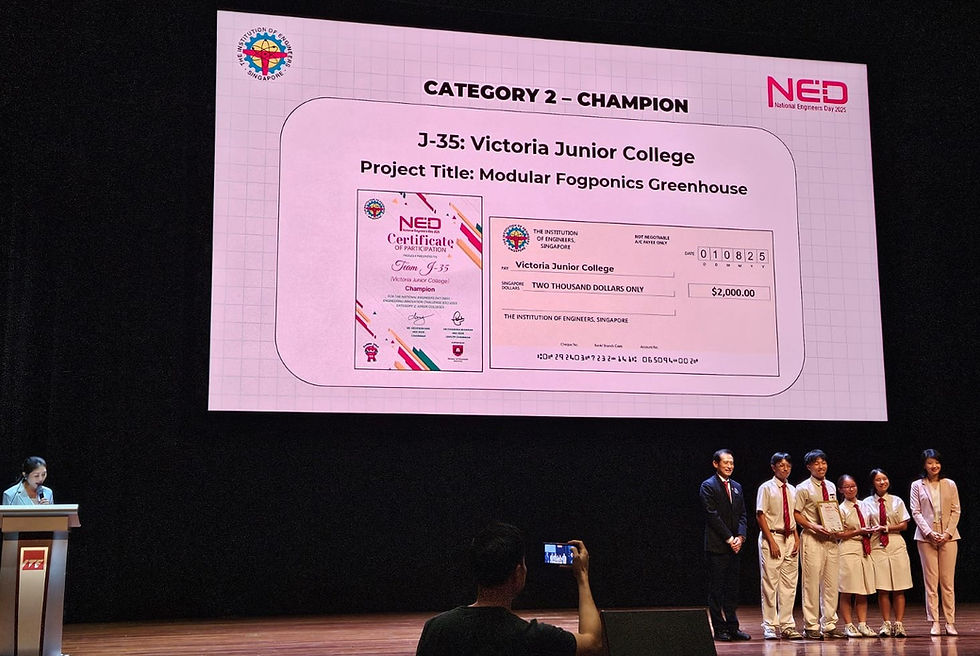Why SkillsFuture Needs to Empower Future Founders, Not Just Workers in the Age of GenAI
- Dr Reginald Thio

- Aug 20
- 3 min read
Updated: Aug 21

In his National Day Rally 2025 speech, Prime Minister Lawrence Wong emphasized SkillsFuture as a cornerstone for workers to upgrade and stay relevant. While SkillsFuture has made invaluable strides, the reality is that upskilling alone isn’t enough, especially in a landscape reshaped by generative AI and global labor competition.
The Limits of Skills Upgrading
Skills upgrading only works well if the broader economy expands to create enough good jobs that match those new competencies. If companies are not hiring or if they can fill roles more cheaply with foreign manpower then local workers may still find themselves sidelined despite upgrading. This leads to frustration: the training may be enriching personally, but if it cannot be translated into tangible economic opportunities, its value diminishes in the eyes of the worker.
The Global Competition Factor
Singapore is an open economy deeply embedded in global labour markets. Companies are constantly balancing productivity, wages, and costs. Even with training subsidies, there will always be market pressure to hire lower-cost foreign talent for certain sectors. This tension puts local workers in a bind: they may upskill repeatedly, yet still face stiff competition for employment.
Beyond Employment: Charting a Path for Ownership
This is why the conversation should shift beyond simply upgrading workers for jobs. SkillsFuture should not only be viewed as an employability strategy but also as a self-sufficiency strategy. Instead of focusing solely on making workers attractive to employers, we should equally emphasize equipping workers with unique, marketable skills that enable them to strike out on their own whether as freelancers, small business owners, or entrepreneurs.
When skills are coupled with entrepreneurship training and access to micro-funding, workers can create value independently, without waiting for the right company to hire them. For example:
A mid-career professional trained in digital marketing could offer niche consultancy services to SMEs.
A worker retrained in baking or food technology could launch a small home-based business.
A technician skilled in robotics or coding could freelance in project-based work, rather than relying solely on corporate employment.
At Ryse Education, we see this shift already happening for the motivated students. We are integrating SkillsFuture principles with portfolio-building, helping our students craft distinctive, real-world projects that position them not merely as college applicants/future job candidates but as creators and problem solvers. This is about turbocharging learners to take ownership of their academic and career trajectories through well-directed pathways.
Learning from Stanford: Aspiring to Create, Not Just Conform
Consider the ambitions seen at top institutions like Stanford. Many of the undergraduates at such schools dream not of simply landing a high-paying job in finance or consulting, but of building the next great tech start-up by leveraging their skills, networks, and new technologies to shape their own destinies and chase outsized success. For them, Wall Street is not the finish line; it’s just another option along a broader path of self-driven achievement.
SkillsFuture’s Next Act: From Worker Bees to Future Founders
This spirit of embracing technology, building unique capabilities, and aiming for leadership, not just employment is exactly what Singapore’s upskilling journey should cultivate. MBA graduates may still flock to elite jobs, but the next generation is increasingly looking beyond the conventional paths. This entrepreneurial spirit, fueled by deep skills and enabled by AI tools, is precisely what Singapore must cultivate. SkillsFuture must evolve from a program focused on employability to a platform that fosters economic agency and resilience.
Planning solely for employment is no longer enough. It’s time to empower people to become a creator and an owner of their future. For both students and working mid-career professionals, start nurturing your unique skills, encourage entrepreneurial thinking, and support portfolio-building initiatives that fuse real-world experiences with emerging technologies like GenAI.
For students, if you’re ready to future-proof your journey and foster true ownership of your academic or career path, consider exploring how Ryse Education can help you build distinctive portfolios and entrepreneurial mindsets. We empower you with the mindset to thrive, no matter what the future brings.


